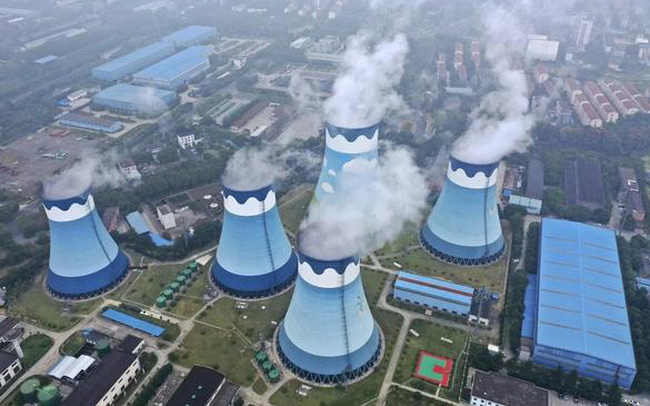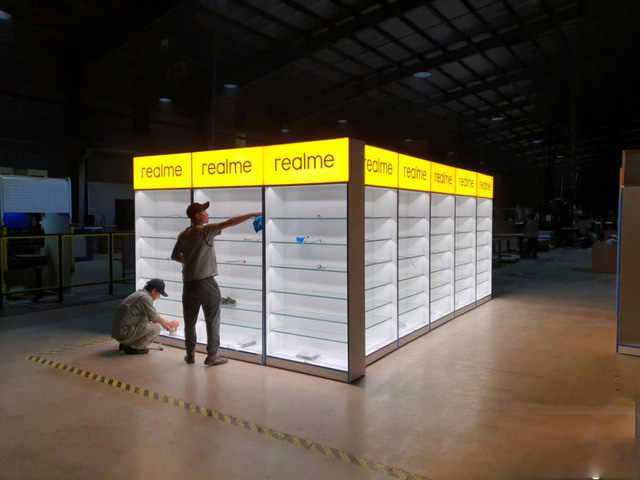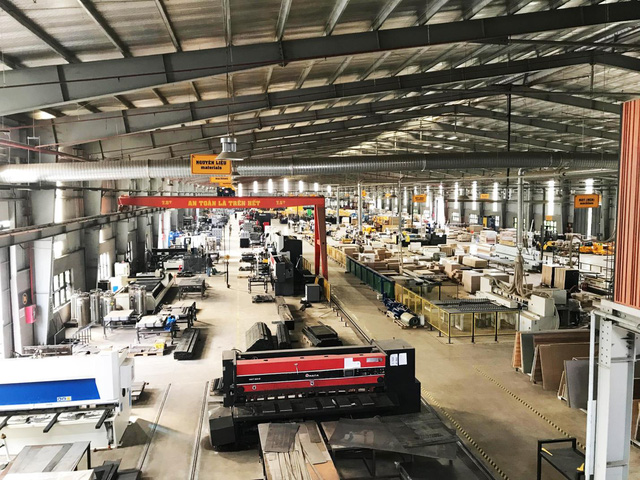Thực trạng khủng hoảng điện tại Trung Quốc tác động trực tiếp lên chuỗi cung ứng toàn cầu, đè nặng lên nền kinh tế thế giới vốn đang “oằn mình” chống chọi với đại dịch.
Khủng hoảng điện đang ảnh hưởng sâu rộng đến toàn bộ ngành sản xuất và cung ứng của Trung Quốc
Trung Quốc đang đối diện với cuộc khủng hoảng điện có quy mô lớn chưa từng có trong hơn 1 thập kỷ qua. Một phần nguyên nhân là do những chính sách của Bắc Kinh bao gồm những nỗ lực hạn chế lượng khí thải carbon. Tình trạng này tác động không nhỏ đến nền kinh tế toàn cầu, vốn đã được định hình lại bởi đại dịch.
Các cơ sở công nghiệp khổng lồ của Trung Quốc đã phải vật lộn với tình trạng giá điện tăng mạnh và phải hạn chế sử dụng điện ít nhất là từ tháng 3. Khi đó, chính quyền Nội Mông yêu cầu một số ngành công nghiệp nặng, như nhà máy luyện nhôm, hạn chế sử dụng điện để họ có thể đạt được mục tiêu sử dụng năng lượng trong quý đầu tiên.
Đến tháng 5, các nhà sản xuất ở Quảng Đông, tỉnh xuất khẩu chính của Trung Quốc, cũng nhận được yêu cầu tương tự trong bối cảnh thời tiết nắng nóng kết hợp với sản lượng thủy điện thấp hơn bình thường, gây căng thẳng cho hệ thống lưới điện quốc gia. Các khu công nghiệp lớn khác dọc bờ biển phía Đông nước này cũng bị giới hạn mức tiêu thụ điện và bị cắt điện luân phiên.
Sang đến tháng 9, việc hạn chế sử dụng điện đã lan sang 16 tỉnh, thành, tức hơn 1/2 đất nước Trung Quốc, trong đó có thủ đô Bắc Kinh và ảnh hưởng tới cả điện sinh hoạt của các hộ gia đình cũng như điện sử dụng tại các địa điểm công cộng.

Khủng hoảng điện tạo làn sóng mới dịch chuyển chuỗi cung ứng khỏi Trung Quốc
Các nhà cung ứng của Apple, Amazon cùng nhiều tập đoàn lớn khác đang dần dịch chuyển sản xuất khỏi Trung Quốc để tránh nguy cơ “tập trung sản xuất quá mức” ở đại lục.
Sau tuần thiếu điện trầm trọng vào cuối tháng 9, nhiều nhà cung ứng của Apple đã lên tiếng cảnh báo rằng cắt điện gây ra mối đe dọa lớn đối với chuỗi cung ứng. Quan ngại ngày một trầm trọng về việc đứt gãy sản xuất sẽ trở thành một xu hướng dài hạn. “Chúng tôi biết rằng tình trạng này có thể kéo dài đến cuối năm nay hoặc lâu hơn”, giám đốc điều hành một công ty chuyên sản xuất loa ở Đông Hoản (Dongguan), tỉnh Quảng Đông bày tỏ.
Đây là công ty chuyên cung cấp sản phẩm cho Amazon, Lenovo và nhiều tên tuổi khác. Nhưng hãng chỉ hoạt động 3 ngày trong một tuần do nguồn cung điện bị hạn chế. “Những bất tiện như vậy dần dần sẽ vượt quá khả năng chịu đựng. Giờ chúng tôi lại một lần nữa phải đánh giá lại kế hoạch mở các cơ sở mới ngoài Trung Quốc, có thể là ở Việt Nam, Indonesia hoặc Thái Lan”, vị giám đốc điều hành này chia sẻ.
Chuỗi cung ứng Việt Nam “hưởng lợi” từ khủng hoảng điện Trung Quốc
Thống kê cho thấy sản lượng và giá bán thép – xi măng Việt Nam xuất khẩu sang Trung Quốc ghi nhận mức tăng trưởng mạnh trong tháng 8 và 9 so với giai đoạn từ tháng 5 đến tháng 7 trước đó, cùng lúc các nhà máy sản xuất vật liệu xây dựng tại Trung Quốc bị yêu cầu cắt giảm công suất do thiếu điện. Các nhà xuất khẩu vật liệu xây dựng Việt Nam đang được hưởng lợi khi quốc gia láng giềng thiếu hụt nguồn cung tạm thời.

Theo ông Nguyễn Thiện Ngôn – Tổng Giám Đốc Công ty Á Đông, một trong những nhà sản xuất quầy kệ hàng đầu Việt Nam cho biết: “Trong khoảng thời gian này các thương hiệu bán lẻ tìm đến Á Đông gia tăng đột biến để bù đắp sự thiếu hụt nguồn cung quầy kệ từ các nhà sản xuất Trung Quốc. Đây là cơ hội lớn cho các doanh nghiệp cung ứng Việt Nam chứng minh được năng lực sản xuất và các lợi thế sân nhà như chất lượng, tiến độ và bài toán chi phí lâu dài”

Rajiv Biswas, chuyên gia phân tích kinh tế tại IHS Markit, công ty hàng đầu thế giới chuyên cung cấp phân tích về các ngành công nghiệp và thị trường lớn cho biết “Việt Nam là một trong những nước hưởng lợi nhất từ cuộc dịch chuyển và đa dạng hoá chuỗi cung ứng đang diễn ra.
Lợi thế của Việt Nam bao gồm chi phí sản xuất tương đối thấp so với Trung Quốc, lực lượng nhân công có tay nghề và được đào tạo tốt, cơ sở hạ tầng tốt nhờ vào sự đầu tư khổng lồ trong thập niên qua”
Trước xu hướng dịch chuyển ngày càng mạnh mẽ của các thương hiệu lớn, các doanh nghiệp sản xuất Việt Nam cũng nhanh chóng củng cố năng lực của mình để tiếp nhận và gia tăng vai trò trong chuỗi cung ứng.
Các công ty tích cực đầu tư vào công nghệ sản xuất, vận hành và hoàn thiện mạng lưới logistic với mức chi phí ngày càng cạnh tranh. Sự nhạy bén và linh hoạt của doanh nghiệp với những thay đổi của thị trường chính là yếu tố sống còn quyết định một doanh nghiệp có thể nắm bắt cơ hội từ đợt dịch chuyển lớn này hay không.
Nguồn: https://cafef.vn/chuoi-cung-ung-viet-nam-huong-loi-tu-khung-hoang-dien-trung-quoc-20211120143129338.chn








